
International Women in Engineering Day
International Women in Engineering Day, #INWED25, celebrates the wonderful work women in engineering do to support the lives of others every day, and this year's theme is 'Together we Engineer'.
Here at Strathclyde, we know that education can change the world, and that's why we're committed to widening access to education with equal opportunities for all.
Let's meet some of our brilliant women working in the engineering industry, and find out how they're engineering together!
Annalisa Riccardi
Mechanical & Aerospace Engineering
Annalisa Riccardi received her PhD from the Centre of Industrial Mathematics of the University of Bremen, Germany, in 2012 with a thesis on multi-objective multidisciplinary design optimisation techniques for rocket design.
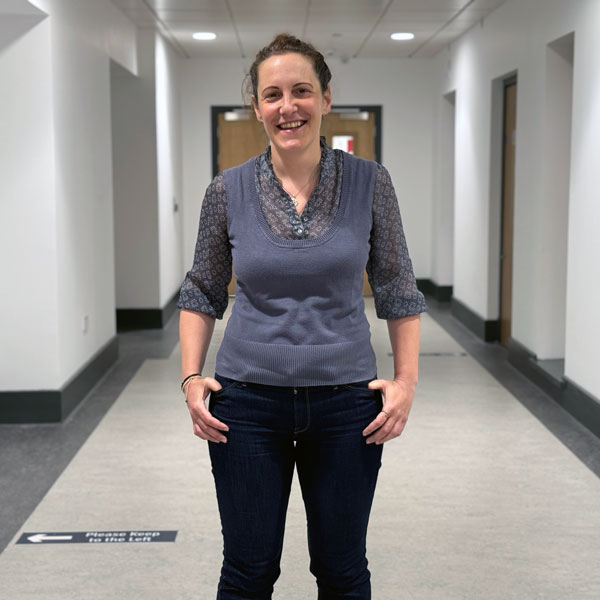
After completing her PhD, Annalisa joined the Advanced Concepts Team of the European Space Agency as a Research Fellow in applied mathematics and computer science, where she continued pursuing her research on optimisation, looking at constraints handling techniques for evolutionary computation. Annalisa also extended her expertise into computational intelligence, particularly machine learning algorithms for ordinal regression and extreme learning machine algorithms.
In 2014 Annalisa moved to us here, into our Advanced Space Concepts Laboratory where, while continuing working on shape optimisation, optimal control, combinatorial optimisation and surrogate modeling techniques with applications to the automotive and oil and gas sectors, she started to work on uncertainty propagation techniques and optimisation under uncertainties.
How did you come to work in engineering?
"I always loved maths, ever since I was very young, because I liked the challenge of solving complex problems.
"Aerospace is a very complex environment, and from a mathematical point of view there are a lot of challenges - from getting into space to how to control vehicles when they're in space - mathematics is everywhere, and so, for me, I found that aerospace engineering was the best application of mathematics in terms of challenges".
Why do we need more women working in engineering?
"We need more women in engineering because we're very creative and good at problem solving which is an advantage."
Dr Grainne El Mountassir
Civil & Environmental Engineering
Dr Grainne El Mountassir is a Senior Lecturer in Geotechnical Engineering and Director for Research in the Department of Civil and Environmental Engineering.
Grainne's research focuses on developing novel technologies using biological and biochemical processes that can alter the hydraulic and mechanical behaviour of soils and rocks.
Over the last ten years, the team at Strathclyde have been developing microbially induced calcite precipitation as a technique for rock grouting, soil stabiliation, well sealing and concrete repair. More recently Grainne has been leading investigations into the potential use of fungi and their hyphal networks in ground improvement applications.
Why did you want to work in engineering?
"As a child, I was always really interested in building things, like building three-storey houses out of cardboard boxes, and later on as I got older I was building hideouts out of wooden palettes with a friend in a field next to her house. At secondary school, I really liked maths and physics, and I knew I wanted to do engineering but I didn't know what kind, so I went on a summer school for girls when I was 16. There we got the chance to try out lots of different types of engineering. Then I saw the civil engineering labs and we did some experiments and I thought 'ohh I really like this'.
"I really like the fact that civil engineers provide all the things we use on a daily basis - our roads, our rail networks, dams, flood embankments, bridges, stadiums, our water distribution networks - all of this - we really need civil engineers just as part of our daily lives."
Why does engineering need more women?
"At the moment in the engineering sector in the UK, we're crying out for engineers, especially as we move towards a lower carbon economy. We need to change the way we do things, we need to build more sustainably, we also need to be resilient in the face of the changing climate, and we need to include women as part of the workforce so that we have a diverse group of engineers to come up with different ways of thinking, and different ways to tackle the same problem. We don't want a workforce where everyone is in the same mould - teams that are diverse have been shown to perform and work better."
What's your favourite part of working in engineering?
"I love to tinker with things, and my research now focuses on trying to use microbiology in civil engineering, and it's a really new novel area and I love getting my hands dirty and have lots of research in the labs but the best part for me is working with people."
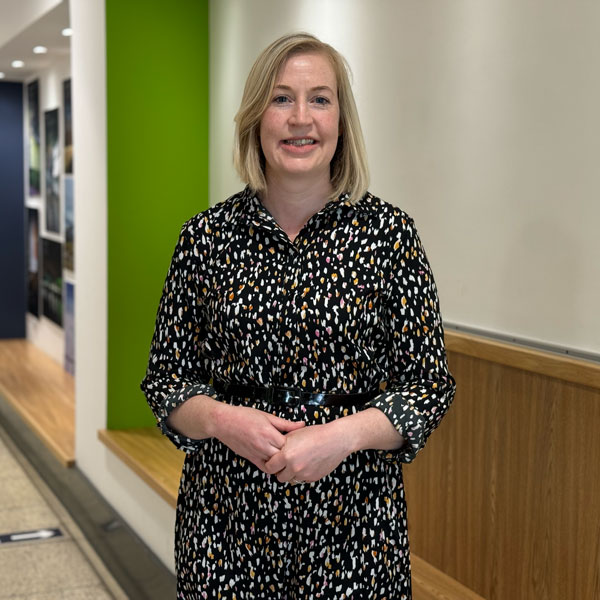
Preparing the next generation of female engineers
Engineering The Future for Girls Programme
Engineering The Future for Girls is a yearly programme here at Strathclyde, designed to inspire young female pupils to discover the excitement and personal satisfaction behind a career in engineering through participation in hands-on challenges.
Participants hear from staff and students at the University along with colleagues from BAM Nuttall, Weir Plc and West Fraser who provide an insight into studying and working in engineering. There's also a group project throughout the week.
Kanzis Mattu
Civil & Environmental Engineering
Kanzis was born here in Glasgow before her family moved to Florida, USA, when she was four years old. That's where she discovered her love of extreme weather which eventually led to a degree in geography, a Masters in applied meteorology, and now a PhD looking at extreme weather events and their impacts, here at Strathclyde.
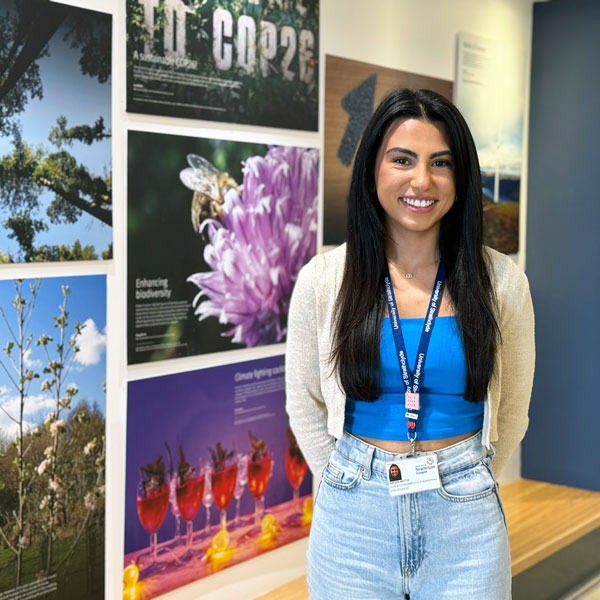
Kanzis's research is focused on multivariate compound cold events in the United Kingdom. Her work so far has looked at characterising MCCE in the UK into cold-dry and cold-wet events and is trying to identify the drivers behind these events using weather patterns. At the moment, Kanzis is looking at the impact of multivariate compound cold events on the rail sector in Scotland, and will move on to explore how her findings can be used in impact-based forecasting systems.
What do you like about working in engineering?
"I love that it's so multi-faceted. There's so many opportunities and ways I can take my research - I chose to look at the rail sector but I could look at the energy sector, I could look at agriculture, I could look at other forms of transport, and that's just within my remit of meteorology and engineering - there's so many other things you could do.
"I also like the idea that my research can be put into practice and can one day help inform operational procedures. I’ve always wanted to do something meaningful that will make a difference and this research allows me to do just that."
Why do we need more women in engineering?
"There's a real lack of women in the industry just now and that means the industry is missing out. Women and men think differently and often women will approach problems in a different way."
Emma Stewart
Mechanical & Aerospace Engineering
Emma Stewart has just completed her Masters in Aero-Mechanical Engineering with distinction. Congratulations Emma!
After beginning her studies in 2019, Emma studied remotely for two years in the middle of her course through the COVID-19 pandemic before heading to Germany to study for a year abroad, returning home to finish up her course and securing a graduate job with Balfour Beatty to work in their power transmission and distribution unit as a design engineer which she'll start in September! What a journey.
Why did you want to become an engineer?
"During school I was always really good at maths and physics, and I really enjoyed the problem-solving side of that, so going into engineering was the best thing for me to use my maths and physics skills every day and be able to problem-solve and apply what I learn to real-life solutions."
Why aero-mechanical engineering?
"I was looking at both subjects and being able to combine them gave me the best of both worlds."
Why does the industry need more women?
"Women bring a different perspective, and have an eye for different things that can help."
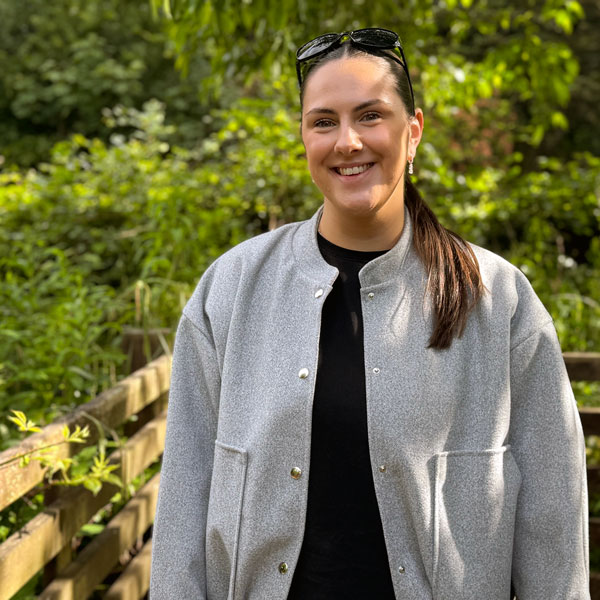
Zuzanna Woznicka
Architecture
Zuzanna grew up in Poland and, after travelling the world following her high school graduation, realised that architecture is everywhere. She then decided to move to Scotland to complete an HND in Architectural Technology at Edinburgh College to gain entry to our architecture degree here at Strathclyde. She has just completed her Year 4 with Honours - congratulations Zuzanna!
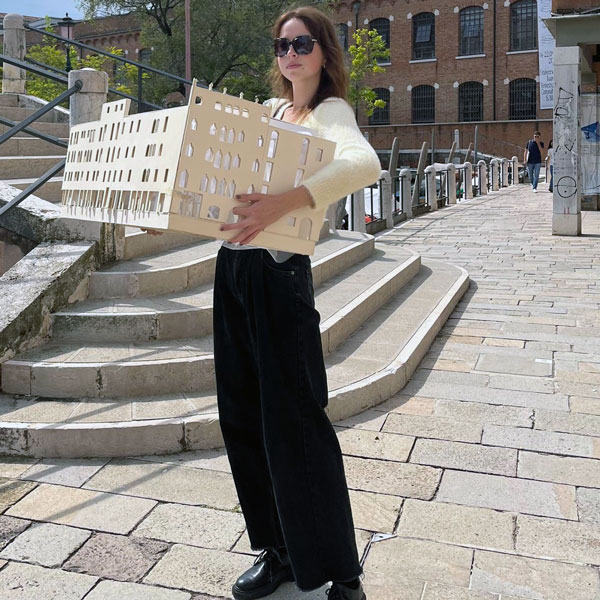
Why did you want to study architecture?
"During my travels, I had the opportunity to experience various cultures and see many different places and I realised that everything surrounding us is architecture. Architects play a crucial role in defining human spaces, and I decided that I wanted to contribute to placemaking, supporting communities, and creating spaces that enhance their lives and bring beauty to their surroundings."
What do you like about being in the engineering space?
"What I like most is that, in Architecture at Strathclyde, our workshop space is predominantly occupied by girls! It makes me happy to see that we are encouraged to engage in woodworking and work with different materials. In our department, equality is paramount, and I have never felt limited in what I can do because of my gender. We're encouraged to take bold steps and supported in our progress and development."
Why do we need more women in engineering?
"Women bring valuable diversity to engineering. Our unique viewpoints and problem-solving approaches can lead to more innovative solutions and we can broaden the range of products and technologies by addressing needs specific to women. Since engineering solutions impact everyone, it's crucial that they reflect our diverse society. Inviting more women into engineering also expands the talent pool and women help fill the gap in the shortage of engineers by entering the field and contributing their skills. Most importantly, women in engineering serve as role models, inspiring young girls to pursue their dreams and become whatever they aspire to be."
Young Weir-Wise
Discovering Engineering with S2 Girls
Our Young Weir-Wise programme, run in partnership with the Weir Group, is designed to inspire young female students to discover the excitement and personal satisfaction behind a career in engineering.
Taking place every year, the programme offers 150 female secondary pupils the opportunity to travel to and attend our university over a couple of days. It aims to inspire the girls through a series of group activities and engineering challenges, while also informing them of the educational requirements for university entry to an engineering degree.
Successful pupils work in teams to take part in a series of practical activities offered by our engineering departments. Current female students from the Faculty will act as mentors to the teams, providing first-hand insight into studying at the University.
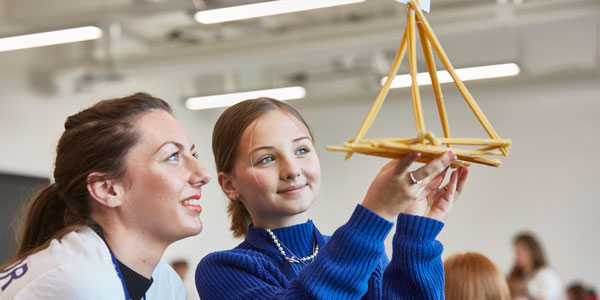
Dr Sivapriya Bhagavathy
Power Networks Demonstration Centre (PNDC)
Dr Sivapriya Bhagavathy is one of our Lead R&D Engineers at the PNDC, where some of our amazing Strathclyde people join forces to shape energy system innovation. She has an undergraduate degree in electrical and electronics engineering, a Masters degree in energy systems, and a doctoral degree in electrical engineering.
At PNDC, Sivapriya develops and delivers a portfolio of technical research and innovation projects in whole energy system, with particular emphasis on experimental validation and testing. Her research focuses on the integration of heat and transport into the electricity vector, and the role of hydrogen in the transition to net-zero. Sivapriya is currently looking at whole system energy transition, including multi-vector and multi-dimensional transfer of energy.